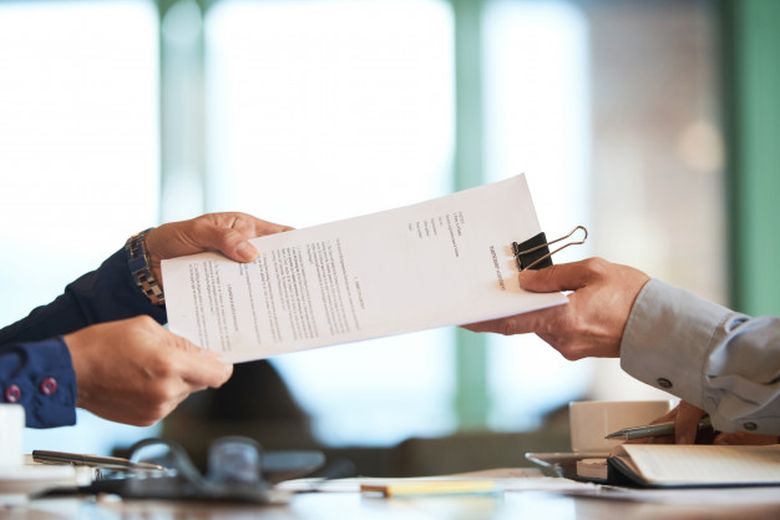There is a strong probability that you may not recognize Portfolio Recovery Associates to be one of your creditors. The reason for this is that Portfolio Recovery Associates is neither a bank nor a lender. On the contrary, this is a debt-buying company that buys charged-off accounts from different creditors. Charged off indicates that the original creditor has abandoned repayment under the original terms of the loan and now classifies your account as a bad debt. However, all this does not mean that you do not owe the amount that remains to be paid.
Companies like Portfolio Recovery Associates will buy your charged off debt for less than the amount owed and then proceed to sue you to collect the full amount owed along with fees as well as interest. Before they sue you, Portfolio Recovery Associates can attempt to collect the debt you owe either through sending you letters or making phone calls. Understanding your rights when debt collectors are chasing you to collect money is important. Below you will find some important things to keep in mind during the Portfolio Recovery lawsuit.
Respond to the portfolio recovery lawsuit

In fact, one of the biggest and most common mistakes consumers tend to make if they get sued by a credit card company or collection agency would be to ignore the lawsuit and simply be hopeful that the creditor will forget about it. This is something which happens very rarely, if at all. Once they have already devoted the time and money to start a lawsuit against you, then forgetting to get the money from you would be impossible.
Once you are sued by Portfolio Recovery Associates you may get a Summons and Complaint from the attorneys who represent Portfolio Recovery Associates. On the document, you will find a date by which a response must be filed with the court. By ignoring the date on the document along with the court process as a whole, the judge automatically concludes that the debt belongs to you. The judge will then allow Portfolio Recovery Associates to make a default judgment against you, allowing them to proceed with the collection of the amount of money they are suing you for.
Be careful when hiring someone to help you

You will find that there are people out there, like lawyers, willing to help you out with your debt while charging you tons of money, but in the end, do literally nothing for you. On the other hand, you will find companies that concentrate on debt settlement at which point they will be looking for your credit report in an attempt to do a sales job for you. They would like to bring up your complete financial situation despite the fact that you actually reached for help in order to get their attention to one mandatory problem, which is that you have been sued.
Spending time talking to someone who knows what they’re doing in that respect can save you a lot of time, so click here in order to find an experienced lawyer who will make an effort to help you through the portfolio recovery lawsuit.
Do not miss the deadline

Be sure to file an answer with the court no later than 30 days after you have been notified of the Portfolio Recovery lawsuit. The main goal of the Portfolio Recovery lawsuit would be to have you fail in filing your response in a timely manner. Unless you file a timely response, Portfolio Recovery Associates can possibly obtain a default judgment against you. In other words, in the absence of your response, the court will let Portfolio Recovery Associates take a judgment against you for the full amount claimed. Portfolio Recovery Associates may go ahead and ask for a judgment against you once you miss the 30-day deadline.
Despite the fact that there is already a later court date scheduled. Despite properly representing yourself, chances are that a biased court will issue Portfolio Recovery Associates an undeserved victory. Therefore, this is an additional great reason to hire a lawyer to defend you, since having a good lawyer will also effectively protect your right to object if needed.
Do not ever give them more information than they request

Throughout the portfolio recovery lawsuit, it is very common that consumers may panic and provide too much information regarding their personal finances and even more than is requested by the court. You should not handle the disclosure period of the portfolio recovery lawsuit this way. It is important to remember that you are not supposed to give them more information than they have requested and always make sure that their document requests are fully justified by the circumstances of the case. Before giving any information, you should consult with an attorney.
Ask the creditor and collection agency to verify the amount

Don’t rush to confirm the amount you owe, even if you think it might be correct. You may presume that since a Portfolio Recovery lawsuit has been filed, then they must have the documents to prove it. In fact, they probably expect that you’ll never ask for it. Therefore, there is a really good reason that you do it because it could be that they’re bluffing. Moreover, they become limited in what they can do if they cannot justify the amount they want to collect. Subsequently, the Portfolio Recovery lawsuit will be settled or dropped. So it is worth asking questions.
If you are served with the Portfolio Recovery lawsuit, it’s time to pay serious attention to your debt. Never expect that it will simply vanish or that they will not be able to win due to the fact that you do not possess any assets. However, with a lawyer representing you, you are far more likely to negotiate a better settlement in which you will end up paying less than you owe. At the same time, a lawyer would also be able to carefully examine all of your information to ensure that you will not be paying a debt that you do not actually owe.

